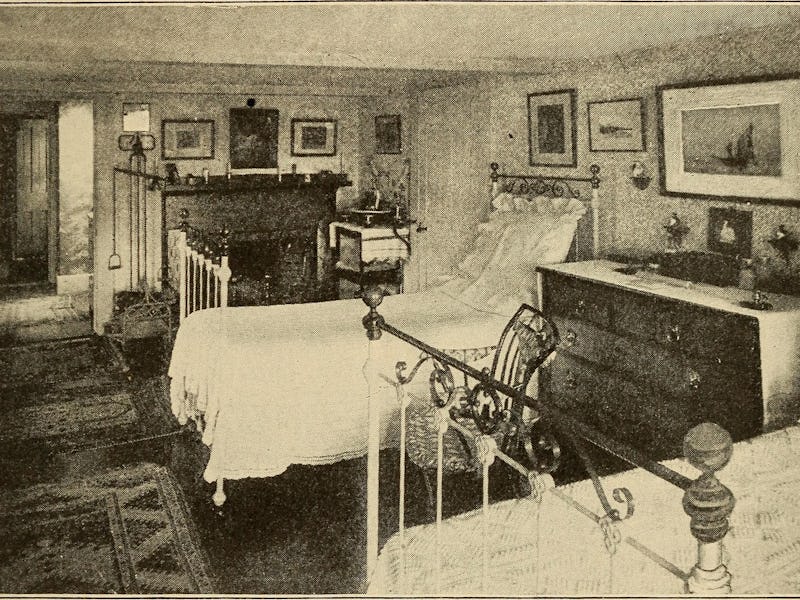Your Holiday Nightmares Are Echoes of Your Shitty Childhood
Going home again means vivid dreams. That can be good or bad.

The number one reason Americans travel long-distances during the holidays is to visit friends and family. Millions of people in millions of planes, trains, and automobiles speed toward loved ones and get stuffed in a variety of ways. For many, going back to a childhood home is part of the deal. And these people have — for a variety of well-documented reasons — crazy-ass dreams.
People older than 10 typically have at least four to six dreams every night — although people also tend to forget 95 to 99 percent of these dreams. Dreams happen during the REM cycles of sleep, which begin about 90 minutes after first falling asleep and occur about every 90 minutes after. These cycles last between five and 35 minutes — they become increasingly long as the night goes on. REM stands for “rapid eye movement sleep” and during a REM cycle parts of the brain used in learning are activated while brain chemical systems paralyze our skeletal muscle to keep us from enacting what is going on while we dream.
Whether or not someone’s dreams are affected by sleeping in that childhood bed is dependent on their relationship to home and the people that live there. How well you sleep affects how you dream, and studies demonstrate that anxiety and stress in turn alter the quality of sleep. While it may seem counterintuitive, less sleep ultimately means you’ll remember crazier dreams. Authors of a 2005 paper in the journal Sleep explain that losing 30 minutes of REM sleep one night can result in a 35 percent REM increase the very next night.
REM deprivation leads to increased stimulation during that second night, and study patients claimed that the dreams from night two were more vivid and memorable.
We still don't completely understand why we dream.
If the stress of being home for the holidays is getting to you and your slumber, then it’s fair to say that you may end up having dreams that feel more wild than your usual fare. But other environmental factors can affect your dreams as well: 2008 research conducted at the University Hospital Mannheim in Germany found that real-life odors affected how subjects emotionally rated their dreams. While the study subjects entered into the REM stage of sleep, the researchers administered a shot of a scent — either rotten eggs or of roses. When the subjects smelled roses, they recalled more pleasant dreams. The subjects who unknowingly smelled rotten eggs reported negative dreams.
This result, the researchers argue, is because smell is closely related to the part of the brain that controls emotion and behavior. Lead author Boris Stuck told National Geographic that he wasn’t too surprised by these results because, “If odor has a strong effect on your emotions when you’re awake, it makes sense for it to have a strong effect on your emotions when you’re asleep.”
It would also be wise of you not to deal with any at-home anxiety with alcohol if you’re trying to have peaceful dreams. Alcohol suppresses REM cycles, so you’ll run into the same problem as anxious sleep — once your body metabolizes the alcohol, a “REM rebound” kicks in, increases the duration of later REM cycles, and induces more vivid dreams.
Whether or not these dreams speak to whatever feelings you have about going home is another question. There’s no scientific conclusion to why we dream — some researchers think we dream as a practice round for future events, others say that dreams represent the emotions we suppress during the day. A team of University of Arizona psychologists believe that dreams are a biological long-term memory consolidation process — changing levels of brain cortisol cause the changing topics of dreams throughout the night, and these dreams strengthen memories of recent events. The best way to grab hold of dreams that work best for you? Lucid dream your way to a good night’s sleep.